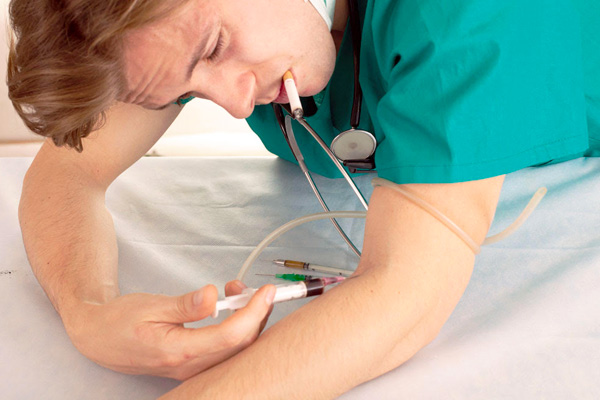PHYSICIAN HEAL THYSELF –
Aug. 25, 2022 – It incentivizes physicians hiding their addiction and avoiding unwanted attention that comes from seeking help. Most individuals will not ask for help if they receive punishment and judgment as a result. After 2 years of a pandemic during which physicians and nurses absorbed the brunt of the stress, with rates of all types of addiction in other populations skyrocketing across the country, it is difficult to imagine that this problem of physicians and addiction has not become even more prevalent.
Personally, I am 14 years into recovery from a severe and, toward the end, all-consuming addiction to prescription opioids. During my addiction, and my halting steps toward recovery, I learned about the challenges and obstacles that face physicians who struggle with substance use disorders. As is my modus operandi, I learned about these things the hard way: I had the state police and the US Drug Enforcement Administration (DEA) in my office; received 3 felony drug charges leading to several years probation; stayed in an out-of-state rehabilitation facility for 3 months; lost my medical license for 3 years; and had to donate about 20 gallons worth of urine for drug testing over a period of 5 years.
In addition to the usual conditions that predispose individuals to addiction—family history, trauma history, undertreated anxiety and depression, poor distress tolerance—physicians have extra stressors that greatly enhance our risk. No one would argue that we have little anxiety in our professional lives. When you think about it, we have the same stressors as everyone (eg, depression, divorces, caring for older family members, illnesses, financial problems, troubles with our children), plus we have the added stress of trying to be good doctors in a profoundly broken system. Many of us face moral injury daily as we try to do what is right for our patients in the face of hospital and insurance policies that undermine us. We click on the electronic medical records (EMRs) late into the evening, trying to catch up, after our children fall asleep. This is not healthy or sustainable.
We also have knowledge about and access to easily abusable prescription opioids and sedatives. The mixture of additive stress and open access to medications is a perfect storm for addiction (which is why I called my memoir Free Refills). It starts slowly, and before you know it, you are withdrawing, afraid to get help, and feeling trapped. To ask for help is to risk bringing the medical board crashing down on your head. Who would do this voluntarily? The culture of medicine dictates we are supposed to be strong and independent and are viewed as (and feel) weak or substandard if we ask for help further worsens this situation.



